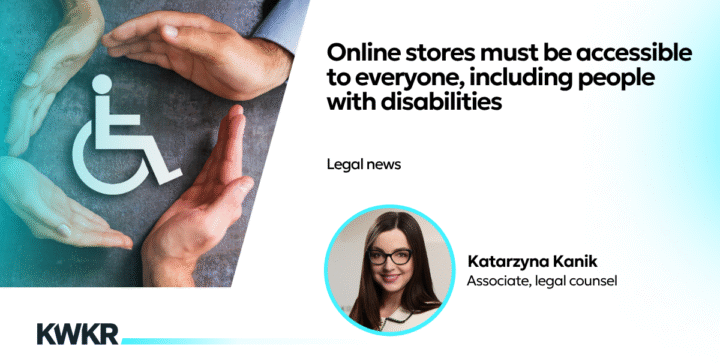New law in effect: from June 28, 2025, online stores must be accessible to everyone, including people with disabilities
Is your online store compliant with digital accessibility requirements? Starting June 28, 2025, this is no longer just a best practice – it’s a legal obligation. A new law implementing the EU Digital Accessibility Directive (EAA) is significantly changing Polish e-commerce. Any entrepreneur selling online must now ensure their website and mobile app are accessible to all users, regardless of their abilities.

A New Reality for E-Commerce
Until now, digital accessibility regulations mainly applied to the public sector – government offices, schools, and cultural institutions. Private online stores were largely exempt. That’s about to change. The new law, passed on April 26, 2024, imposes accessibility obligations on manufacturers, importers, distributors, and service providers – including owners of online stores. Only micro-enterprises providing services only are exempt, though even here there are exceptions; for example, producers of payment terminals must meet accessibility standards.
What Exactly Does “Digital Accessibility” Mean?
Accessibility is more than just high-contrast text. It’s a comprehensive approach to designing websites and apps that consider the needs of people with various disabilities. The new regulations are based on four key principles (known as the POUR principles):
-
Perceivable – All content must be perceivable through different senses. Examples include alternative text for product images, captions and transcripts for videos, and clearly labeled forms.
-
Operable – The store must be fully usable not only with a mouse but also with a keyboard or screen reader. The interface should work intuitively and not cause users to get lost.
-
Understandable – The language of messages and instructions must be simple, and the shopping process should be logical and predictable. Forms must include clear guidance and highlight errors effectively.
-
Robust – The website and app must work correctly across different browsers and devices. It’s also crucial to support assistive technologies such as screen readers.
The standard that best aligns with these requirements is WCAG 2.1 or 2.2 at the AA level. Although not explicitly named in the law, these guidelines are the market benchmark and should be followed.
What Are the Penalties for Non-Compliance?
Failing to ensure accessibility may lead not only to lost customers but also to real financial penalties. The law provides for sanctions of up to 10% of a company’s annual turnover or up to ten times the average monthly salary, whichever is higher.
Time to Take Action
If you sell online, you are legally required to act now. As of June 28, 2025, specific regulations apply. Conduct an accessibility audit, plan the necessary implementations, and consult specialists. Digital accessibility is no longer a choice – it’s a duty. And a well-prepared store is a profitable store.

